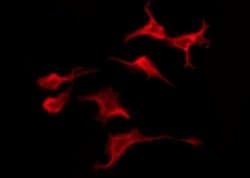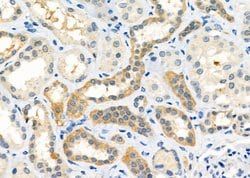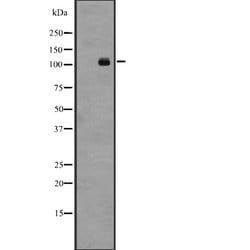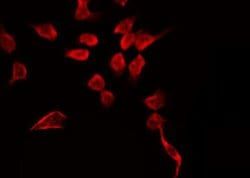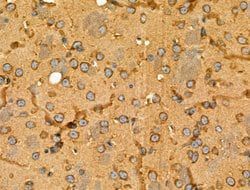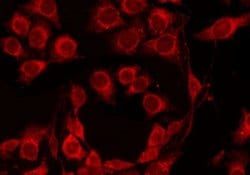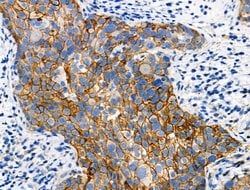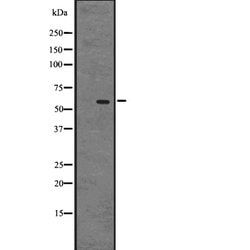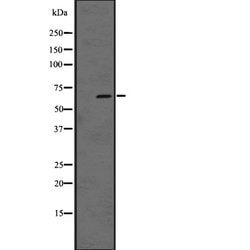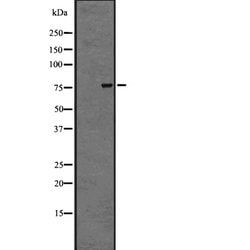GPR37 Polyclonal Antibody, Invitrogen™
Manufacturer: Thermo Scientific
Select a Size
| Pack Size | SKU | Availability | Price |
|---|---|---|---|
| Each of 1 | PIPA5118809-Each-of-1 | In Stock | ₹ 43,209.50 |
PIPA5118809 - Each of 1
In Stock
Quantity
1
Base Price: ₹ 43,209.50
GST (18%): ₹ 7,777.71
Total Price: ₹ 50,987.21
Antigen
GPR37
Classification
Polyclonal
Conjugate
Unconjugated
Gene
GPR37
Gene Alias
AI848630; EDNRBL; endothelin B receptor-like protein 1; ETBR-LP-1; G protein-coupled receptor 37; G protein-coupled receptor 37 (endothelin receptor type B-like); Gpcr/cns1; Gpr37; G-protein coupled receptor 37; G-protein coupled receptor CNS1; hET(B)R-LP; Het-b-r-lp; Pael receptor; PAELR; Pael-R; parkin-associated endothelin B-like receptor; Parkin-associated endothelin receptor-like receptor; probable G-protein coupled receptor 37; prosaposin receptor GPR37
Host Species
Rabbit
Purification Method
Affinity chromatography
Regulatory Status
RUO
Gene ID (Entrez)
117549, 14763, 2861
Content And Storage
-20°C
Form
Liquid
Applications
Western Blot
Concentration
1 mg/mL
Formulation
PBS with 50% glycerol and 0.02% sodium azide; pH 7.4
Gene Accession No.
O15354, Q9QY42, Q9QYC6
Gene Symbols
GPR37
Immunogen
A synthesized peptide derived from human GPR37(Accession O15354), corresponding to amino acid residues F556-F606.
Quantity
100 μL
Primary or Secondary
Primary
Target Species
Human, Mouse, Rat
Product Type
Antibody
Isotype
IgG
Description
- Antibody detects endogenous levels of total GPR37
- Parkinson is the second most common neurodegenerative disease after Alzheimers
- About 1 percent of people over the age of 65 and 3 percent of people over the age of 75 are affected by the disease
- The mutation is the most common cause of Parkinson disease identified to date
- The function of Park2 is not well-known; however, it may play a role in the ubiquitin-mediated proteolytic pathway
- Mutations in this gene are known to cause autosomal recessive juvenile parkinsonism
- Alternative splicing of this gene produces three known products of undetermined function
- Panneuronal expression of Parkin substrate Pael-R causes age-dependent selective degeneration of Drosophila dopaminergic (DA) neurons; coexpression of Parkin degrades Pael-R and suppresses its toxicity.
